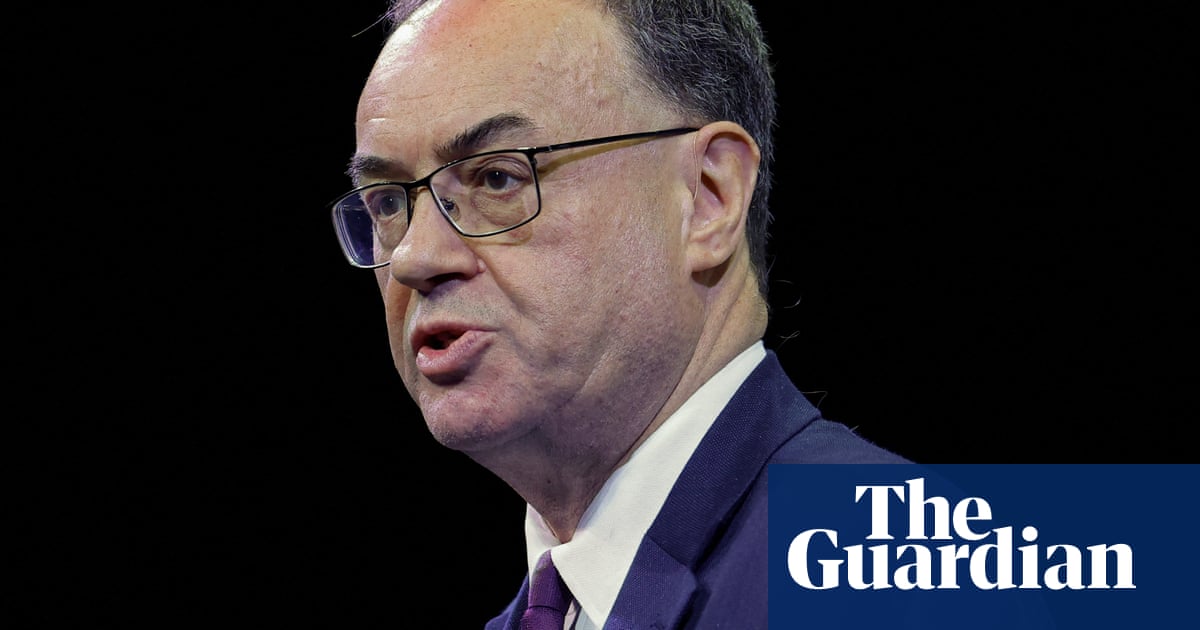TheBank of Englandgovernor, Andrew Bailey, has told MPs that the future path of interest rates in the UK has become more uncertain because of Donald Trump’s chaotic trade policy.
Asked about the impact of on-off tariffs for the Bank’s policymaking by the cross-party Treasury select committee, Bailey said “the path remains downwards, but how far and how quickly is now shrouded in a lot more uncertainty, frankly”.
The Bank’s nine-member monetary policy committee (MPC) has cut interest rates four times – to 4.25% – since last summer, as inflation has slowed.
Bailey said some businesses were telling the Bank that they were pausing investment because of the uncertainty around trade barriers.
“The impact of fragmenting the world trading system is negative for world growth and world activity: it obviously increases uncertainty,” he told MPs. “You hear it now when you go round the country from businesses. One impact of that is that it tends to cause delays and putting off of investment decisions.”
He welcomed the UK’s trade agreement with the US, but said that tariffs remained higher than before Trump came to power, and that because the UK was such an open economy it was more affected by the wider global picture.
“The overall picture on trade now I’m afraid is one where the rules-based system is sort of dead,” he said. “That has very serious consequences for the global economy.”
Bailey also said he continues to expect wage growth to decline in the coming months – suggesting the MPC may feel more confident to cut rates.
“I have no evidence to doubt the steer from our agents’ pay survey that come the end of this year … wage settlements should be around 3.7- 3.8%, which is a good percentage point below where we are now,” Bailey said. He added: “That’s going to be a crucial judgment going forward.”
The governor also acknowledged that financial markets have been volatile in recent weeks as a result of rapidly changing US trade policy. “This is having a big impact on markets; markets have moved quite a lot since our last meeting,” he said.
He expressed particular concern about the market “constellation” – where equity markets are falling, at the same time as US bond yields have risen and the dollar has depreciated – suggesting these periods have shifted White House policy.
“We had two periods in the post ‘liberation day’ period where that became quite acute, frankly. On both occasions, the administration did respond: the first led to the 90-day period to negotiate trade agreements, the second one concerned the position of chair [Jerome] Powell,” he said.
“We haven’t seen that particular constellation since, because the equity markets haven’t behaved in the same way. But I think we have to watch this very carefully, because the equity markets appear to be discounting a more optimistic view of how this will pan out.”
Sign up toBusiness Today
Get set for the working day – we'll point you to all the business news and analysis you need every morning
after newsletter promotion
Two external members of the MPC, Swati Dhingra and Catherine Mann, appeared alongside Bailey and explained their voting decisions on interest rates.
Dhingra, a trade expert, who has repeatedly voted for lower rates than the MPC has set, said she was concerned that keeping rates high may be damaging the economy’s future capacity to grow. She suggested this could prompt her to support half-point cuts at future meetings.
“If for a long time we’ve held policy too tight, at some point that level and that time period over which policy has been too tight, starts to play a role, which means I now need to start thinking about, do I increase the decrements for which I’ve been voting or not?” she said.
Mann, who voted for a half-point reduction in February, against the majority, but did not support the quarter-point cut the committee made last month, made clear she prefers more “bold” moves.
“In order to make a clear statement about the stance of monetary policy appropriate for the UK, I think it’s important to make a bolder move, and then to hold for longer,” she said.
